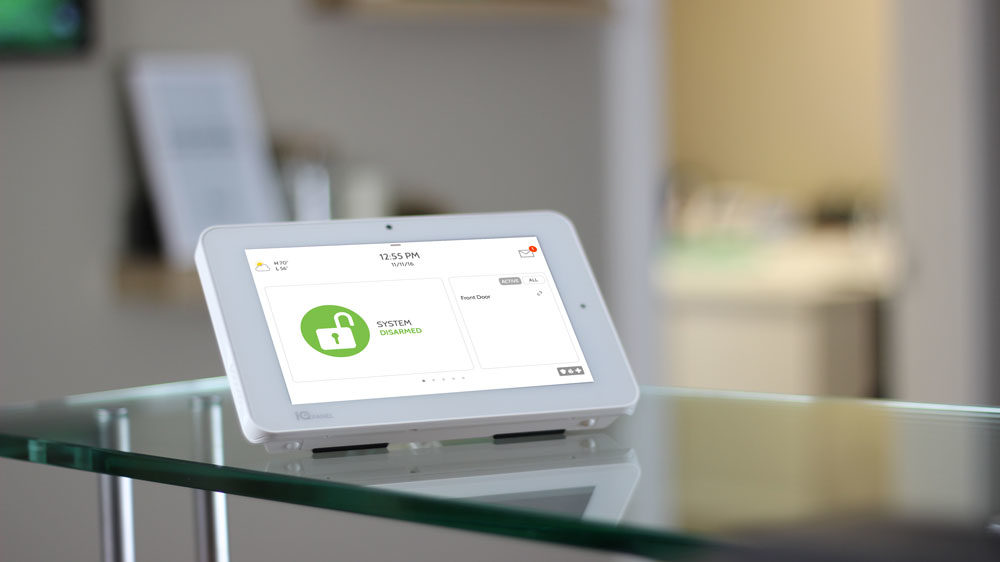We posted a shorter version of this on Facebook and a few of our local media platforms recently. We thought it might be useful to share with a broader audience. We also decided to expand on our list of tips to include information for managing security systems by both the home and the security provider.
Unfortunately, the past year has been a year of conflict and violence ending with the chaos in Washington DC. There is also an overall trickle-down effect from this climate, and increased crime is one of them. We see this increase locally in Central Oregon, in Portland, and throughout the entire state. We also know that Oregon is not that different from the forty-nine other states in our great nation and that crime will be increasing everywhere. With this in mind and twenty years of experience in the security industry, we also understand that the best security prevents your home or business from becoming the target. Here is a good list of our recommendations focused on deterrence, the first layer of an excellent comprehensive security plan.
Best Security Deterrence Tips
- Make sure doors and windows are locked, especially the garage.
- If you have an alarm system, make using it standard practice for everyone in your home or business and make sure signs and stickers are visible and in good clean condition. You want everyone to know you care about security, at least enough to keep the signs clean and upright.
- Pay attention to vehicles and people not familiar with you and call them in to the police.
- Leave a radio or TV on when you leave your home.
- Close the blinds when you leave your home or business if you have them.
- Leave a few low energy lights on without visual access from the outside. Timers for lighting control with schedules in place can make this one of the easiest to implement.
- Turn the front porch light off when you leave.
- Do not let mail or papers stack up if visible.
- Install visible cameras and doorbell cameras that can be seen quickly by drive-by traffic. And know how to operate them and review recorded data.
- Install motion-activated lighting for dark areas around your home or business.
- Dogs are a good deterrent, the bigger and more protective, the better.
- Do not have your address on your keychain, especially if you have a disarming remote for your alarm system attached to the keys.
- Take your garage door opener with you when you leave the car. Not leaving your opener in the car is particularly important when parked outside your garage.
- Your WIFI network needs to be locked down. Meaning your password should be long, random, and complicated. Do not give unauthorized individuals access to this password… We have all seen hackers get access to video camera data, and being careless with network security is one way to lower this risk.
- Get creative with deterrence. My father in law had a sign in the front of his house that said, “This house is protected by shotgun three days a week. You guess which three.” I will always remember this sign, and he has never had a break-in.
- Make sure all members of your family and business know what to do in the event there is a break-in or a life-safety emergency. Installing panic buttons in discrete locations is highly recommended for emergencies.
- Find out if your alarm system is programmed for a duress code to be entered into your alarm system to alert the monitoring center discreetly that you need help and dispatch of police is necessary.
Best Tips for Managing and Maintaining your System Alarm System.
- To prevent false alarms, ensure all authorized individuals know the abort code. The abort code will stop an unnecessary dispatch of the police and fire department. It may seem obvious, but many false alarms occur because of forgetting abort codes.
- Change all life-safety device batteries annually, whether needed or not. A simple call to your alarm system provider can set this up in most cases.
- When one door contact battery gets low or needs replacement, take the extra time to replace all additional door contact batteries.
- Smoke and Carbon Monoxide Detectors have a life-span. Typically, the lifespan is 7-10 years when replacement is necessary. Check the manufacturer’s information to confirm the smoke and CO detectors’ life-span in your home, replacing them when required.
- Take some additional time to understand your security system’s operation and features and ensure that all family members also know how to use it.
- Make sure your alarm system has encrypted technology, preventing hackers from gaining access to your system.
- Ensure your camera recording devices, either on-site or remote, are long, complex, and random.
- Routers and modems need to be updated often, and passwords should be changed frequently. Know how to change your passwords or hire a reputable firm to do it for you.
- Do not leave a key outside in what you consider to be a great hiding place. Invest in at least one coded door lock, eliminating the outdoor key’s necessity.
- Once you have purchased a security system, continue to add protective sensors and devices as your home, security needs, and lifestyle change. Look for areas that remain vulnerable and fill in what is missing.

